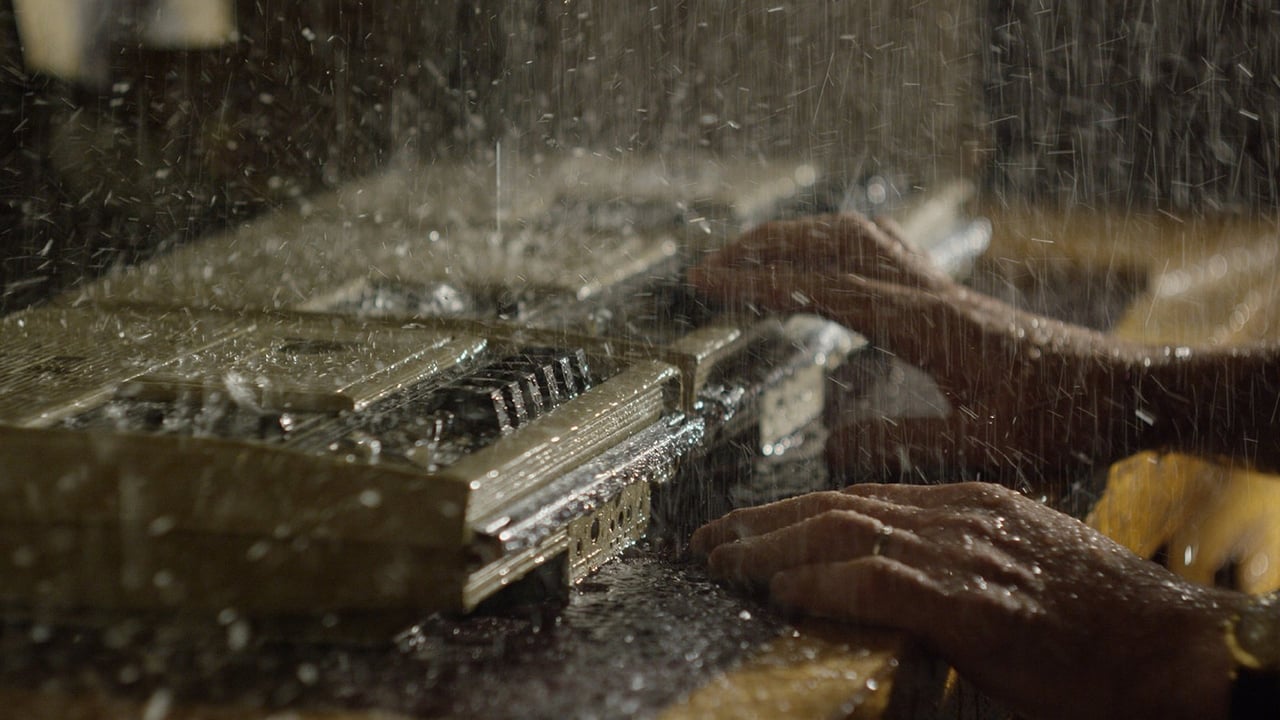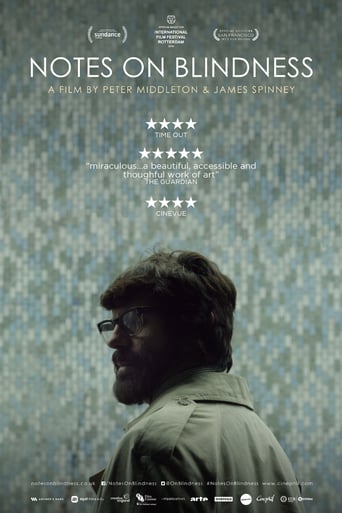2freensel
I saw this movie before reading any reviews, and I thought it was very funny. I was very surprised to see the overwhelmingly negative reviews this film received from critics.
InformationRap
This is one of the few movies I've ever seen where the whole audience broke into spontaneous, loud applause a third of the way in.
Ariella Broughton
It is neither dumb nor smart enough to be fun, and spends way too much time with its boring human characters.
Asad Almond
A clunky actioner with a handful of cool moments.
Gareth Crook
At the beginning of this film onscreen text informs you that John Hull went blind in the 80s and subsequently kept an audio diary. Those original recordings are now used in the film and the actors lip sync to them... It's a beautiful idea and instantly grabs you in this really personal and at times heartbreaking story. Ultimately though, this is expertly crafted and awe-inspiring. It's a theological study as much as a practical one, but John's resolve really leaves you wondering how you'd cope yourself, if you could be as strong. Going blind is a scary thought, but John Hull proves without doubt it need not be.
Edo Schipper
This is such an amazing piece of work; put in the shoes of someone who loses his sight, halfway through his lifetime, which is one of my personal worst nightmares, I was in tears throughout most of this film. Sight is so essential to my every being, I cannot describe how awful it felt to me, to put myself in the shoes of someone losing perhaps the most important sense of all. It was absolutely devastating to be brought along this journey into nothingness with this film. And yet, as John puts it, it's still a gift bestowed upon him, just like this film is. The whole is so beautifully, atmospherically put together. The cinematography matches the subject so incredibly well, it works with how you could possibly show a person's story who can't see. For a person to overcome this disability, to make the most of it, to thrive on it, despite relying on all senses but his sight, is so amazingly inspirational.
I found myself challenging myself to experience my senses, other than my sight more fully. I walked around my house with my eyes shut, I stood outside listening to the rain falling, I familiarised myself to my surroundings.
No film to date has ever had this effect on me.
Ian
(Flash Review)Imagine going blind just before the birth of your first child!? That's a bit of a Debbie Downer. That is what happened to writer and theologian John Hull in 1983. His story is told very uniquely through his diary of tape recordings as he documented his traumatic experience while actors lip synced to the recordings. That creative approach was nicely complimented with cinematography that put the viewer in the atmosphere of blindness as much as one can in a visual medium. Many scenes were awkwardly framed with soft and shifting focus. It often felt like a Mark Rothko painting. Anyway, Mr. Hull recorded a plethora of tapes to capture the feeling of being blind, not from the big obvious points, but by highlighting how blindness effects the little things in life such as smiling and how not being able to see a person smile back at you made him feel like smiling is less enjoyable. Overall, this was a slower paced film that effectively portrayed Mr. Hull coming to terms, find reasons for and solutions to living with his blindness.
Red_Identity
The premise behind this is quite intriguing and so going into it I was really curious about how the whole thing would be executed. It's a documentary and drama film at the same time. It reminded me a lot of The Diving Bell and the Butterfly. There's something quite lyrical and poetic about the filmmaking. The cinematography needed to really capture the kinds of images that could be going around this man's head and through the recorded audio it is able to effectively capture that. I think a problem I had with the film is that I never fully connected with it. I was only able to admire it from a distance because of that disconnect, and because of that I am able to recommend it and say that it is worth the effort. However, it is unfortunate that I wasn't able to like it more.

